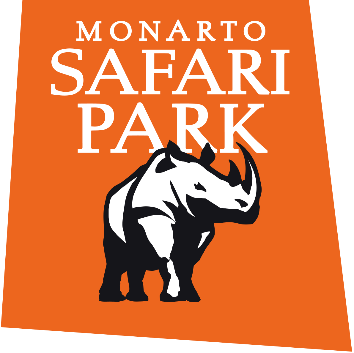When a single Cheetah cub was born at Monarto Safari Park late in the night on Sunday 5 March, keepers were delighted but concerned.
This was just the beginning of a very spotty ‘tail’ that ended in an Australasian first for Zoos SA.
The female cub was born to seven-year-old Quella, but when particular big cat species like Cheetah give birth to one cub, called a singleton, they cannot produce enough milk to sustain their newborn.
Keepers and the dedicated veterinary team acted quickly to provide the best welfare outcome for the furry feline, taking her into 24-hour, round-the-clock care, including two-hourly feeds; after she was abandoned by Quella.
The tiny tot was kept safe and warm in her humidicrib with a few fluffy friends, including a heartbeat teddy and a Cheetah plush toy complete with teats to teach her how to suckle.
She was getting stronger each day, but to provide her the best welfare outcome the team knew she needed to be with other Cheetah to learn natural instincts and behaviours.
This is where this our spotty tale takes a twist. Quella wasn’t the only Cheetah expecting.
Her sister, seven-year-old Qailee was due mere days later and on Sunday 12 March, she delivered two tiny cubs of her own.
Zoos SA’s Veterinary Nurse and Hospital Manager, Dianne Hakof, said the team then had to make the call to try a technique that had never been tested in Australasia before; cross-fostering Quella’s cub into Qailee’s litter.
“When we discovered both Quella and Qailee were expecting, we X-rayed them both to find out how many cubs they were having. With Cheetah, if the mother only has one cub it impacts her ability to lactate and her milk dries up,” she said.
“We hand-reared the first little cub for eight days while we waited for Qailee to give birth, whilst finalising plans for the cross-fostering and ensuring Qailee had the best opportunity to rear her own litter.
“We’d never tried something like this before, we believe it is the first time it has ever been done in the Australasian region.
“White Oak Conservation in the United States have done it before, and they mentored us through the whole process. They were nothing short of wonderful and the reason this has been a success is because of the sharing of knowledge between organisations.”
It was early on 14 March, that Di crawled into the Qailee’s den to place the single cub in with her new siblings.
“We didn’t want that cub smelling like us, so we rubbed some of the straw that was in the den on the singleton cub and we toileted the others and put some of their urine on the foster cub,” she said.
“Then we left… and we waited. Within 24 hours, Qailee was feeding all three cubs and it was amazing.
“It was a huge moment for us as an organisation, as it will inform the way we will breed going forward; such as breeding in pairs or multiples to ensure there is options for cross-fostering or forming a coalition between males.
“You do get attached to the little ones when you are hand raising, but the sweetness of seeing the week pan out after we had done that was just worth every single moment.”
Qailee and her three cubs are now happily snuggling, feeding and spending time bonding as a family.
While we wait for the trio to venture out onto exhibit when they are around three months old, Zoos SA will share pictures and videos of all the cute and cuddly moments on their social channels.
You can also continue the warm fuzzy feeling by supporting Cheetah conservation at Monarto Safari Park and in the wild.
These big cats are sadly just a spot away from extinction, with only 6,000 remaining across eastern and south-western Africa.
Impacted by habitat loss human-wildlife conflict and the illegal wildlife trade, Zoos SA partners with the Cheetah Conservation Fund (CCF) to protect the species in the wild including rescuing cubs from the illegal pet trade and training Livestock Guarding Dogs to protect stock from predators and in turn protect cheetah from conflict with local communities.
And that’s why we’d like you to take a leaf out of Qailee’s book.
Adopt a cheetah at Monarto Safari Park, just like Qailee has adopted a third cub, and help us ensure the survival of these amazing animals.
Your support will help us support the CCF, look after Qailee’s trio at Monarto Safari Park, and help our amazing keepers and veterinary team care for future cubs and invest in future innovative animal techniques like cross-fostering.
You can also lend a paw by donating to Zoos SA to help us buy a new animal handling facility. This will help the Cheetah team assess the health and welfare of these spotty felines.
A big thanks must also go to our pawsome friends at Kimbolton Wines, who support the species through the sale of their 2018 Cabernet Sauvignon ‘Cheetah Wine’ and as an exhibit sponsor.
For more information of Cheetah conservation and to donate to our spotty cause, please visit zoossa.com.au/cheetahbirth.








